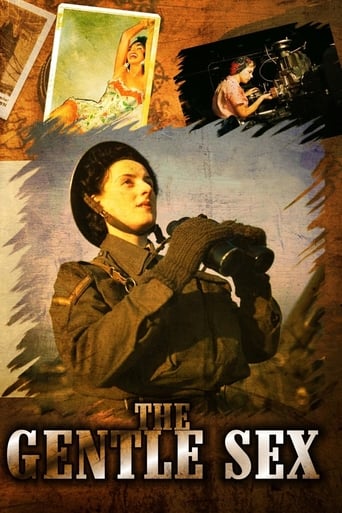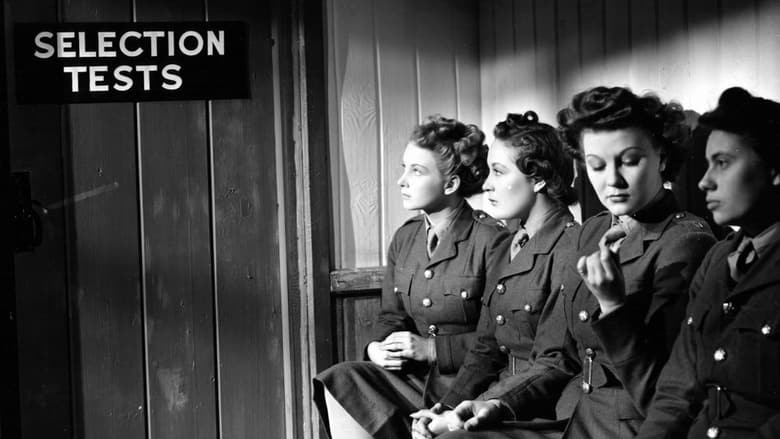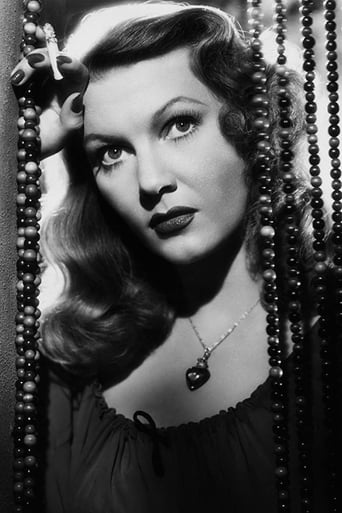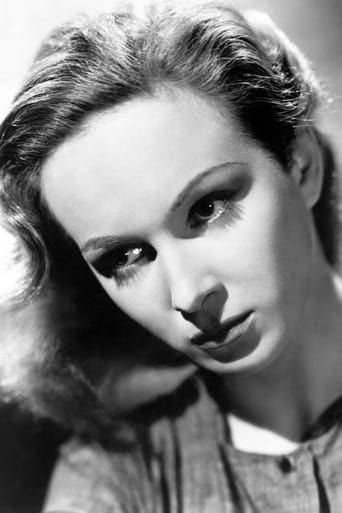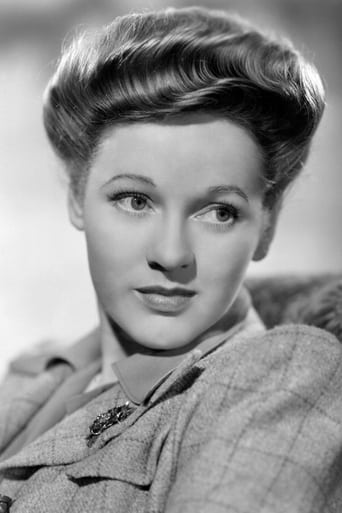The Gentle Sex (1943)
During the War seven women from very different backgrounds find themselves together in the Auxiliary Territorial Services. They are soon drilling, driving lorries, and manning ack-ack batteries.
Watch Trailer
Free Trial Channels
Cast


Reviews
Load of rubbish!!
A very feeble attempt at affirmatie action
In other words,this film is a surreal ride.
This is a dark and sometimes deeply uncomfortable drama
The most interesting thing about this film is that it was Leslie Howard's last film before he was killed--shot down by German planes en route to Lisbon during the war. He both directed and narrates this story which was meant both to celebrate the work of women in the army as well as bolster the spirits of the folks at home. In many ways, the film seems pretty dull...or at least kind of petty through much of the picture. After all, the women's boot camp seemed pretty easy and their work not especially hazardous. Fortunately, by the end of the picture you see real sacrifices and difficulties--something you find yourself longing for because through so much of the film the ladies don't seem exposed to many hardships. Because of this, if you see the movie, stick with it...it's worth it. For a similar sort of film, though a bit better, try "So Proudly We Hail"--the story of a group of nurses and the serious hardships they endure in the early days in the Pacific War.
Okay, it's 1943 and presumably there's no indication of when the war will end, no sign of any breakthrough and D-Day is still a good twelve months away so why not shoot a little propaganda-lite; a sort of visual blend of 'The Lady' and 'Women's Companion' magazines; a little about food, a little about clothes, a little about men, etc. At the time it was probably a minor success; the viewer is drawn gently into it via Lesley Howard's voice-over as he 'selects' a group of women who have all 'joined up' - in this case the A.T.S - and then permits us to follow them on their train journey to the camp where they will undergo basic training. As a time-capsule it is fascinating because for the viewer in 2007 it is like travelling to Atlantis or one of those lost civilizations that so beguiled Professor Fawcett. Was there EVER an England like this? Clearly there was and Tony Blair couldn't rest until he'd obliterated all traces of it. The cast are all competent and although a handful - Joan Greenwood, Rosamund John, John Laurie, Lili Palmer, Jimmy Hanley - continued to work on stage and/or screen none of them really achieved what today we would call Super stardom. It's a modest effort, quintessentially English, worth watching on TV - which is where I saw it - but not worth searching for on DVD.
I imagine this film was originally made as a tool to inform the contemporary public of what war work for those women who enlisted would actually consist; as it happens, to the modern descendants of those largely-forgotten ATS volunteers, it performs the same service.The answer, apparently, is that they underwent quasi-military training in order to fit them to take over auxiliary roles performed in pace-time by men, thus releasing more soldiers for actual combat: they served as mechanics and drivers, tea-orderlies and telephonists, and, in a rare show of belligerence, assisted as anti-aircraft gunners. I must confess to never being quite clear how the drilling and marching fitted into all this, save to inculcate a general sense of military identity!'The Gentle Sex' is basically a documentary about these women's lives and training, and there is very little plot as such. There is one dance and a couple of romances, a marathon drive in which no-one falls asleep at the wheel and no-one is left behind, and a bombing raid in which none of the characters are hurt. The women are drawn from a cross-section of types: bossy Joan and gentle Scots Maggie, the pampered baby and the damaged refugee, the sharp shop-girl and the officer's daughter.Perhaps the most striking moment is when the latter, Anne, goes off into an artificial-sounding speech about how her generation are the first in history to be truly liberated and serve alongside men that had my hackles rising instinctively with its too-obvious message... and then she is quietly deflated by her fiancé's mother mentioning how she herself met her husband after she was wounded while on service at the front in the previous war, and still has the piece of shrapnel to show for it! It's just as much propaganda as the other, of course, but it's an astute acknowledgement and subversion of the film's own potentially preachy effect.The only reason I initially sat down to watch this picture was because of its curiosity status as 'Leslie Howard's last film', although his on-screen appearance is limited to supplying the voice of the sceptical but finally won-over 'mere male observer' who provides the linking commentary. I can't honestly recommend it as a gripping thriller, and it comes to emotional life only in a couple of places: but it remains what it was made to be, an informative and somewhat idealised glimpse into women's military contribution to the Second World War, in a branch of the service often eclipsed by the WRNS and the WAAF. I am reminded -- in a not uncomplimentary comparison -- of the well-presented British Transport Films documentaries.Worth seeing, but don't expect too much.
I saw this film recently on TV, and although social attitudes have changed drastically and is a tad patronising, it's still a worthy entry in the "soldiers going through training" film. What is unusual about it is that it concentrates on women rather than men. British films at the time (and for quite a few years afterwards) were male dominated. The recruits are a mixed bunch: Betty Miller (Joan Greenwood), the youngest, has never been away from home before or done anything for herself and is desperately homesick; Dot Hopkins (Jean Gillie)who wants to do something different; Erna the refugee (Lilly Palmer); Maggie Fraser (Rosamond John) the friendly Scottish girl, who never stops eating; Anne Lawrence (Joyce Howard) who is from a service family who knows what she has to do and is the beauty of the group. Joan Simpson (Barbara Waring), who is sharp tongued and stand-offish but who turns out to be as lonely as the rest of them and Gwen Haydon(Joan Gates) the cheery Cockney girl. Although I found the film enjoyable, I would like to have known more about the background of the recruits. Rosamond John's Scottish accent was unconvincing, though her performance was fine. And was Joan Simpson meant to be a lesbian? She showed her disdain for men throughout and the lady who saw her off at the railway station was very affectionate towards her, though she is listed in the credits as "Miss Simpson", although no reference to their being related was never made clear. Joyce Howard is lovely with a warm, friendly personality. I had never heard of her before and wondered if she was a relation to Leslie Howard, the director? And how any stretch of the imagination could John Laurie (the soldier who dances with Maggie) be referred to as "young", as Leslie Howard did in the final narration? He must have be 45 if he was a day. However, it was nice to see him with a smile on his face for a change. All in all, a good entry in the British wartime film genre.

